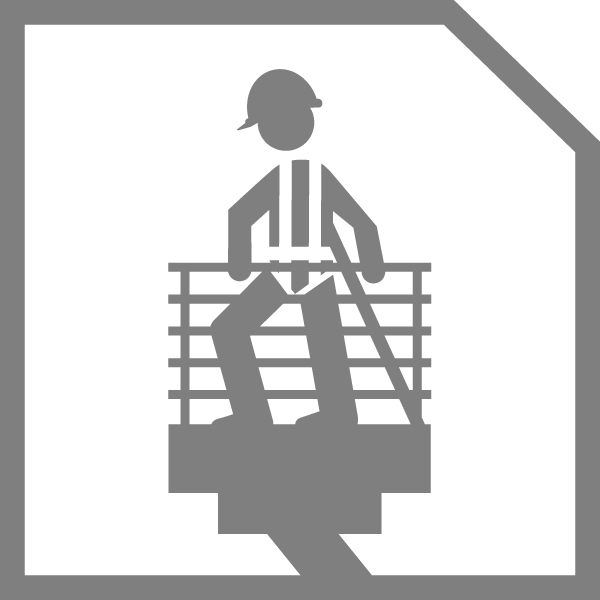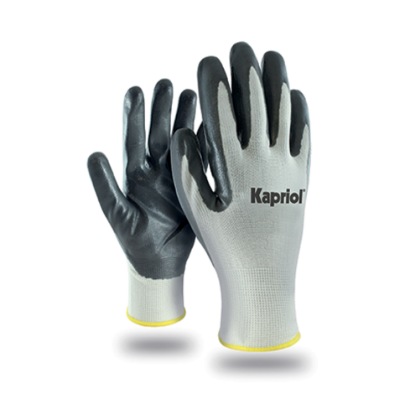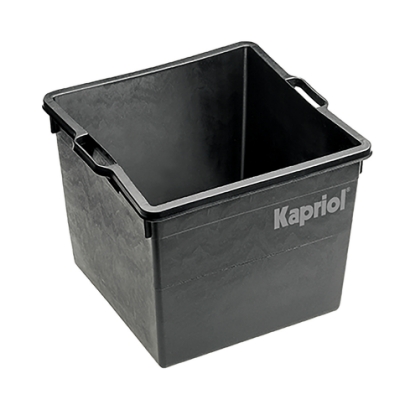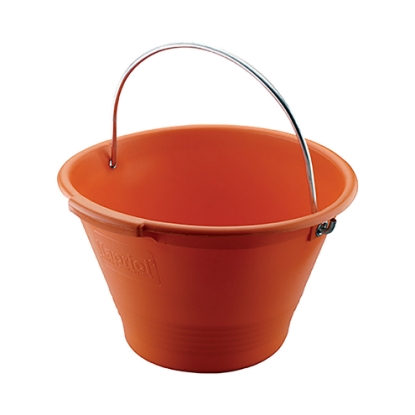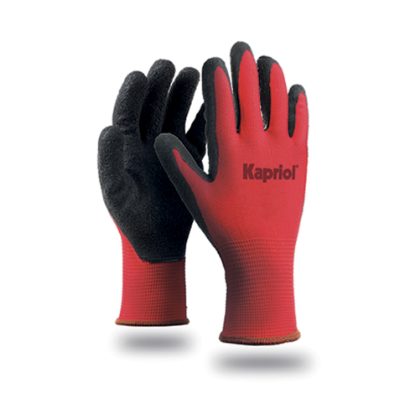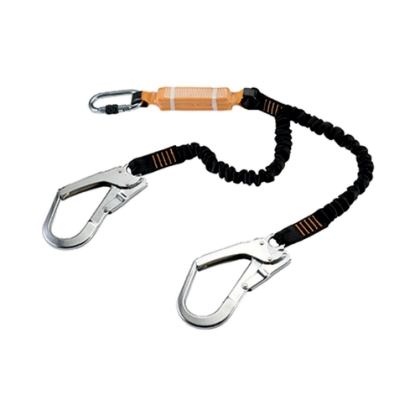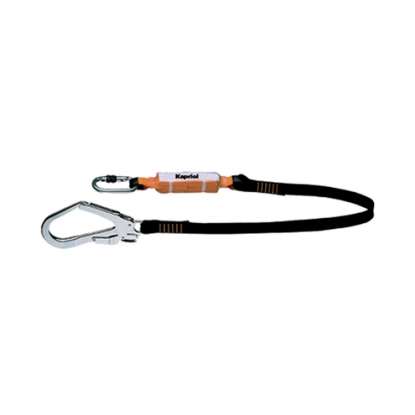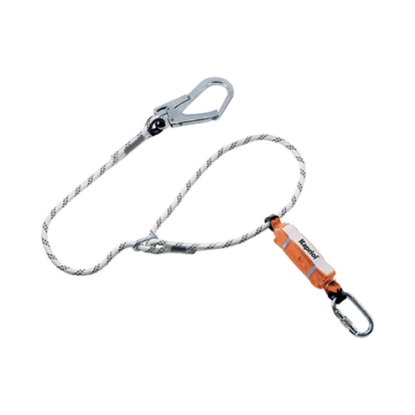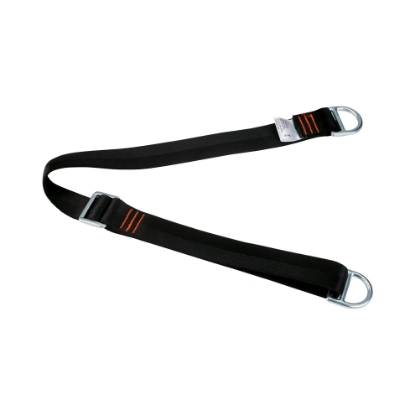| Art./Item | Pcs |
|---|---|
| 27956 | 1 |
Adjustable positioning lanyard with locking system complete with karabiner, connector and regulator.
The Kapriol positioning lanyard consists of a strong 14 mm diameter rope with protective webbing to reduce abrasion, a steel connector and an aluminium alloy regulator with a practical karabiner that simplifies and speeds up positioning operations.
TECHNICAL SPECIFICATIONS
- 14 mm diameter rope
- Steel connector
- Protective webbing
- Regulator with positioning karabiner
- Length 2 m
- EN 358 standard
MATERIAL
- Connectors: steel
- Regulator: aluminium alloy
Use of positioning lanyard
Maintenance and storage of PPE
PPE periodic checks and inspections
Energy absorber
Falling factors
1. Positioning on metal structures can be done using an adjustable positioning lanyard. For progression, a double lanyard with absorber can be used. After the ascent of the first operator, it is possible to anchor one or more ropes to the top to which one can anchor with a guided type sliding device EN353-2.
2. If there is a risk of falling outside the platform, it is essential that the operator is equipped with an adjustable lanyard with energy absorber (art. 27902) or with the retractable fall arrest device art. 27937.
3. In order to prevent the risk of falling and projection outside, the operator must wear a harness with adjustable lanyard attached to the appropriate anchor points located on the platform. By properly adjusting the lanyard, the operator will remain
firmly anchored to the platform.
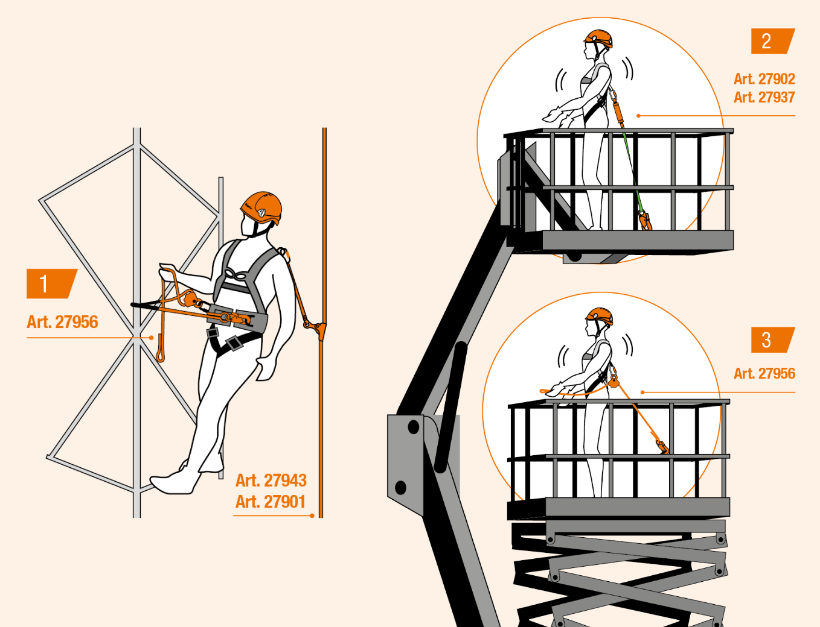
Correct and regular maintenance helps prevent premature ageing of PPE. For this reason, users are recommended to carefully respect all indications found in the user and maintenance manual that accompanies each PPE and to follow the simple storage and preservation rules:
- Keep away from sunlight and UV rays as these are the primary cause of ageing of PPE textile fibers
- Keep PPE away from direct heat sources as the synthetic textile fibers used to make harnesses, lanyards, and energy absorption systems have a very low melting temperature
- PPE must be stored in cool and dry areas, as humidity generates mold harmful to textile fibers and corrosive on metal parts
- A periodic cleaning operation is essential to ensure a good durability of the PPE
- A washing with lukewarm water eliminates surface dirt and that present inside the textile fibers
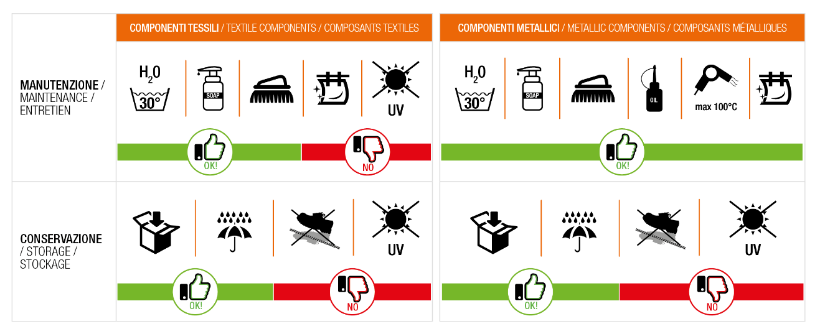
The current legislation requires that each equipment must be subjected to periodic inspections:
- Before, during and after use, the user must check the PPE conditions and integrity through a visual inspection after each use
- At least every 12 months, PPE must be subjected to mandatory periodic checks and inspections by competent personnel authorized by the manufacturing company
Each PPE is accompanied by a manual and identity card that must be kept for the entire use duration of the product and filled in with the periodic inspections data.
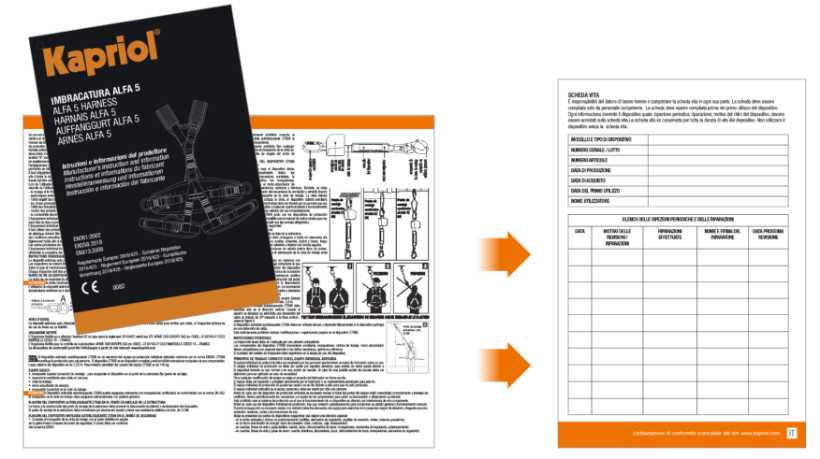
LANYARD WITHOUT ENERGY ABSORBER
PHASE 1: situation of potential fall risk
PHASE 2: (Pic. X) during the fall the lanyard does not perform a shock-absorbing function
PHASE 3: (Pic. X) the energy caused by the fall is absorbed completely by the body of the operator / l’énergie provoquée par la chute se répercute complètement sur le corps de l’opérateur
LANYARD WITH ENERGY ABSORBER
PHASE 1: situation of potential fall risk
PHASE 2: (Pic. Y) in the fall, the lanyard performs a shock-absorbing function thanks to the effect of the energy absorber
PHASE 3: (Pic. Y) the energy caused by a fall is remarkably reduced by the effect of the energy absorber
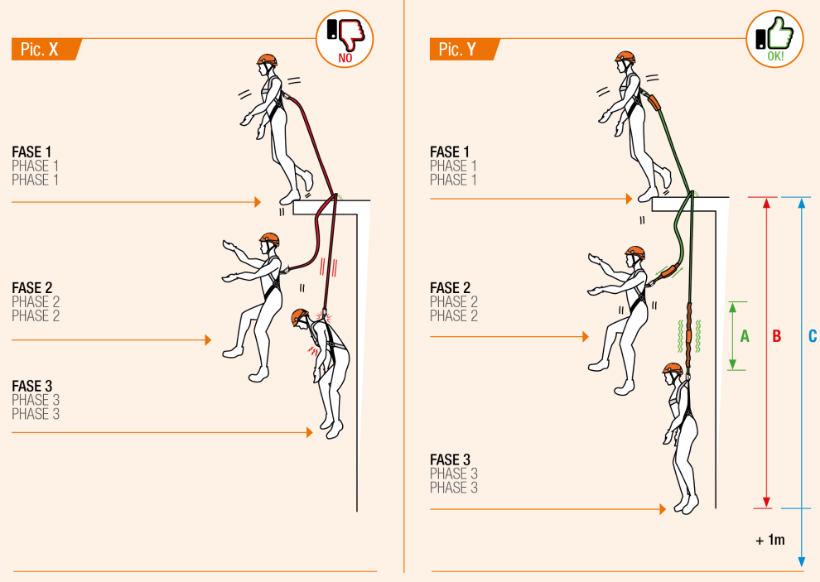
A FATTORE DI CADUTA 0
Il punto di ancoraggio è posto al di sopra della testa dell'operatore; il dispositivo anticaduta risulta essere completamente disteso. In caso di caduta si ha la minor distanza tra il piano di calpestio dell'operatore e il possibile ostacolo sottostante.
B FATTORE DI CADUTA 1
Il punto di ancoraggio è posto allo stesso livello del punto di attacco dell'imbracatura. In questo caso la caduta è pari alla lunghezza del cordino + la distanza del assorbitore di energia intervenuto.
C FATTORE DI CADUTA 2
Il punto di ancoraggio è posto sullo stesso piano di calpestio dell'operatore. In questo caso la caduta è pari a due volte la lunghezza del cordino + la distanza dell'assorbitore di energia intervenuto.
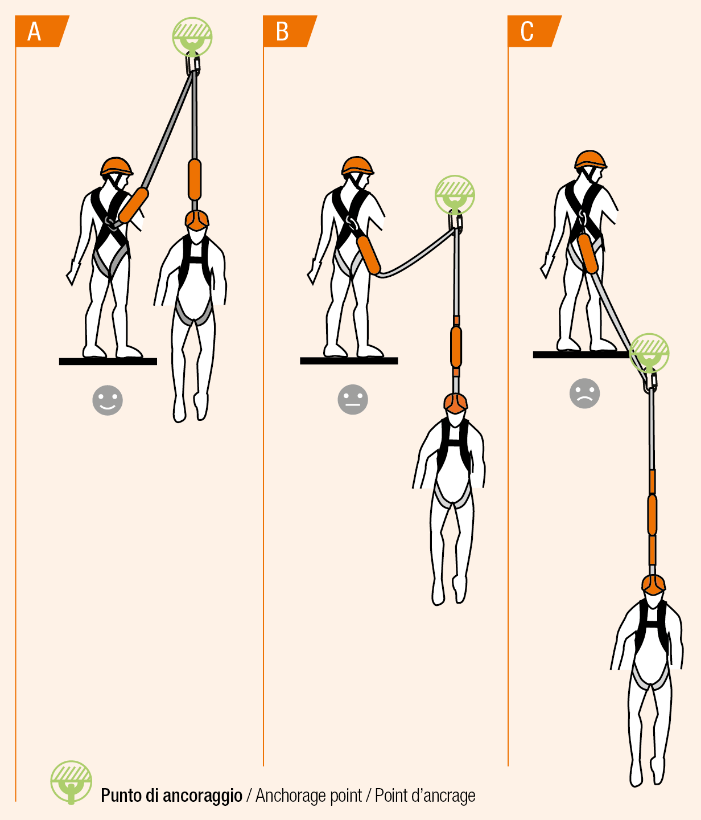
Recommended use
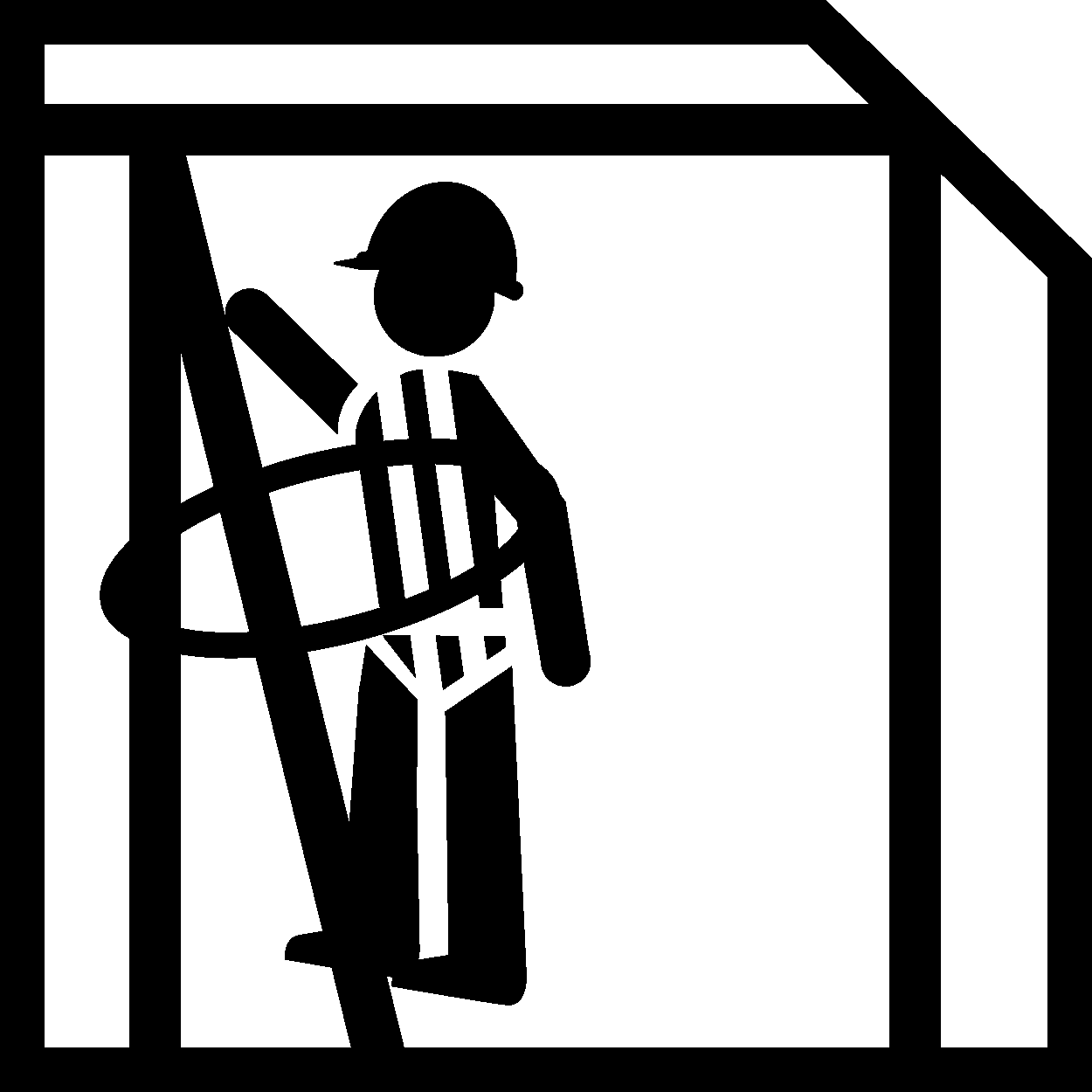
Positioning (on upright)
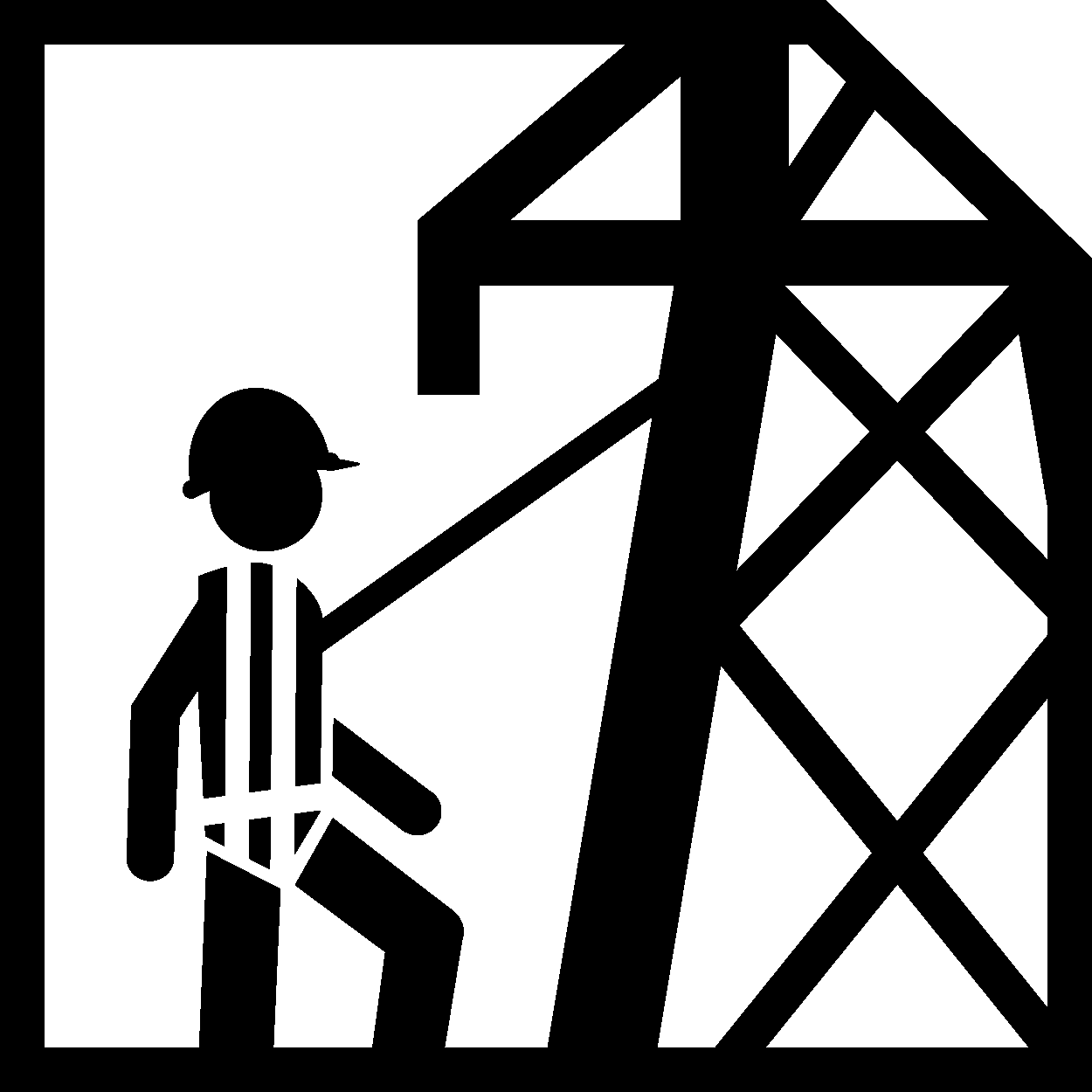
Trellis
Possible use
